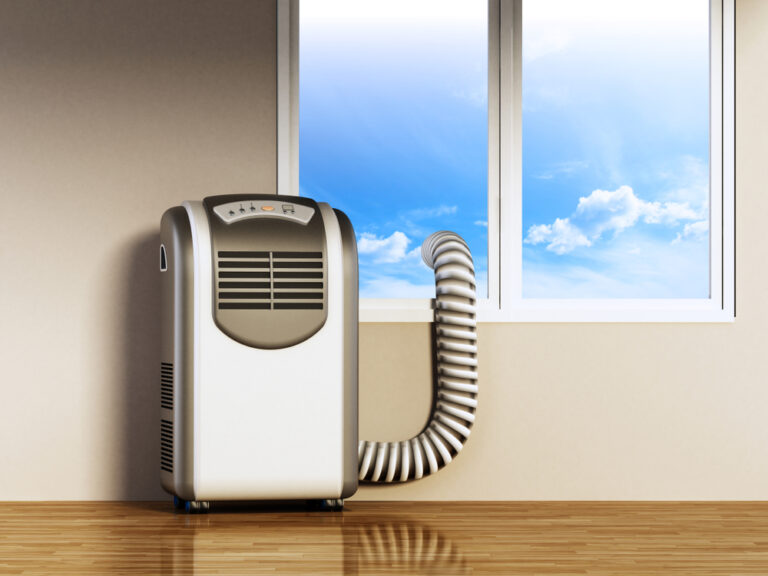No, your air conditioner cannot produce carbon monoxide. Only devices that burn fuel can emit carbon monoxide.
Air conditioners are designed to cool your home by using refrigerants, which are chemical compounds that absorb and release heat. These units do not burn fuel and, therefore, do not produce carbon monoxide, a dangerous gas generated by combustion.
Ensuring your home is properly ventilated and maintaining your HVAC system can help prevent potential issues with other appliances that might pose a carbon monoxide risk.
Regular maintenance checks are crucial for safety and efficiency. By keeping your air conditioner in good shape, you can enjoy a cool and safe environment without worrying about carbon monoxide exposure.
Page Contents
Air Conditioner Basics
Air conditioners cool your home by removing heat. They use a refrigerant to do this. The refrigerant absorbs heat and turns into a gas. Then it releases the heat outside and turns back into a liquid.
| Component | Function |
|---|---|
| Compressor | Pumps refrigerant through the system. |
| Condenser Coil | Releases heat to the outside air. |
| Evaporator Coil | Absorbs heat from inside the home. |
| Fan | Moves air over the coils. |
Understanding Carbon Monoxide
Carbon monoxide is a colorless and odorless gas. It can be very dangerous and even deadly. This gas is produced when fuels like gas, wood, or coal burn. Breathing in carbon monoxide can make you very sick.
Many things can produce carbon monoxide. Here is a list of common sources:
- Car engines
- Gas stoves
- Wood-burning stoves
- Charcoal grills
- Fireplaces
- Furnaces
Common Myths
Many people believe air conditioners can produce carbon monoxide. This myth likely started because of confusion. Carbon monoxide comes from fuel-burning appliances.
Air conditioners do not burn fuel. They use electricity to cool your home. Gas furnaces and boilers burn fuel. These can produce carbon monoxide. Air conditioners cannot.
People often confuse air conditioners with heating systems. This confusion helps myths stay alive. Some people do not understand how air conditioners work. They hear stories and believe them. Misinformation spreads quickly. Many trust what they hear without checking facts. This keeps myths going.
Ac Units And Carbon Monoxide
Air conditioners themselves do not produce carbon monoxide. The danger arises if a fuel-burning appliance is improperly vented. Always ensure proper installation and maintenance to prevent any risks.
How Ac Units Differ
Air conditioners do not burn fuel. They use electricity to cool your home. Carbon monoxide is a byproduct of burning fuel. Since AC units do not burn fuel, they cannot produce carbon monoxide. This makes them safe to use.
Combustion Processes
Furnaces, water heaters, and gas stoves burn fuel. These appliances can produce carbon monoxide. Proper ventilation is important for these devices. AC units do not have combustion processes. They cool air through a different method. Using an air conditioner will not create carbon monoxide.
Signs Of Carbon Monoxide
Feeling dizzy or lightheaded can be a sign. Headaches that don’t go away are also common. Nausea and vomiting might happen.
You could feel weak and tired. Shortness of breath is another symptom. Chest pain can also occur. Confusion and blurred vision are serious signs. These symptoms can be very dangerous.
Carbon monoxide detectors are very important. They can alert you to danger. Place them near sleeping areas. Test them once a month.
Change the batteries twice a year. Ventilate your home well. Check for any blocked vents. Service your HVAC system regularly. Never ignore the alarm sound.

Credit: www.peakhydronics.ca
Ensuring Safety
Regular maintenance is very important. It helps to keep your air conditioner safe. A well-maintained AC unit works better. This reduces the risk of any dangerous gases. Make sure to clean and check your AC filters.
Do this at least once a month. Also, have a professional inspect your unit yearly. This ensures all parts are working well.
Install carbon monoxide detectors in your home. They are essential for safety. Place them near bedrooms and living areas.
Detectors can alert you to dangerous levels of carbon monoxide. This gives you time to act quickly. Change the batteries in detectors every six months. Test them regularly to ensure they work.
Expert Opinions
Air conditioners do not produce carbon monoxide. This gas comes from burning fuels. Common sources include cars and furnaces. Air conditioners use electricity. They do not burn fuels. This means they cannot produce carbon monoxide.
It is important to have your HVAC system checked regularly. This ensures it runs safely and efficiently.
Carbon monoxide is dangerous. It can cause headaches and dizziness. In severe cases, it can be fatal. Air conditioners do not create this gas. Proper ventilation is key.
Always ensure your home is well-ventilated. This prevents carbon monoxide buildup. Install detectors to monitor levels in your home. Keep your family safe by staying informed.

Credit: www.rocklinair.com
Conclusion
Understanding your air conditioner’s safety is crucial. Regular maintenance prevents potential hazards like carbon monoxide. Ensure your unit’s ventilation is clear and working properly. Always consult professionals for inspections and repairs. Keeping your air conditioner in top shape guarantees a safe, comfortable home environment.
Stay vigilant and prioritize your family’s health and safety.
